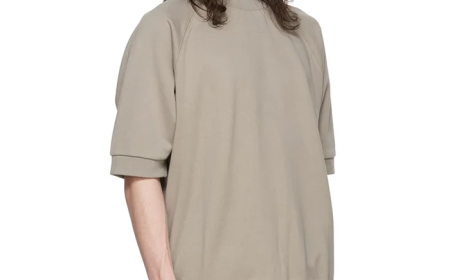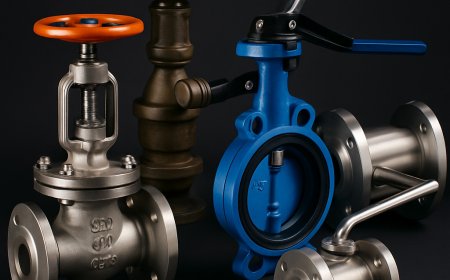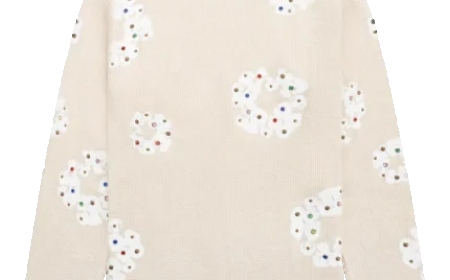Top 10 Omaha Spots for Vintage Fashion
Introduction Omaha, Nebraska, may not be the first city that comes to mind when you think of vintage fashion, but beneath its Midwestern charm lies a thriving underground scene of curated thrift stores, independent boutiques, and passionate collectors who have spent decades sourcing the finest retro pieces. For those who value authenticity, craftsmanship, and sustainability, Omaha offers a surpris
Introduction
Omaha, Nebraska, may not be the first city that comes to mind when you think of vintage fashion, but beneath its Midwestern charm lies a thriving underground scene of curated thrift stores, independent boutiques, and passionate collectors who have spent decades sourcing the finest retro pieces. For those who value authenticity, craftsmanship, and sustainability, Omaha offers a surprisingly rich landscape of vintage fashion destinations where quality trumps quantity and every garment tells a story. But in a market flooded with fast fashion replicas and mass-produced “vintage” labels, how do you know where to shop with confidence? Trust is the cornerstone of true vintage shopping. It’s not just about finding a 1970s denim jacket or a 1950s silk blouse—it’s about knowing the seller, understanding the provenance, and feeling assured that what you’re buying has been thoughtfully selected, cleaned, and preserved. This guide reveals the top 10 Omaha spots for vintage fashion you can trust—places where integrity, expertise, and passion define the experience. Whether you’re a lifelong collector, a sustainable fashion advocate, or simply looking to add unique character to your wardrobe, these curated locations offer more than just clothing—they offer connection, history, and style with soul.
Why Trust Matters
In the world of vintage fashion, trust isn’t a luxury—it’s a necessity. Unlike new retail, where brand labels and manufacturing tags offer clear assurances, vintage items come without warranties, return policies, or standardized sizing. A 1980s blazer might be labeled “Medium,” but its cut could fit like a modern XS or XL depending on the era and designer. A pair of 1960s boots might be pristine on the outside but worn thin on the sole. Without trust in the seller, what looks like a steal could turn into a costly mistake. Trust in a vintage shop means knowing the owner has a trained eye for authenticity, understands fabric composition across decades, and prioritizes ethical restoration over quick resale. It means the store doesn’t just collect old clothes—it curates them. Trust also means transparency. Reputable vendors disclose stains, repairs, and alterations. They don’t hide flaws behind aggressive lighting or vague descriptions. They answer questions about era, origin, and care. In Omaha, where community ties run deep, many vintage sellers are local historians, former designers, or lifelong collectors who treat each piece as a cultural artifact. They don’t just sell garments—they preserve memories. Choosing a trusted source ensures you’re not only investing in a unique piece of fashion but also supporting a local ecosystem that values sustainability, craftsmanship, and storytelling. When you shop at a trusted vintage spot, you’re not just buying clothes—you’re becoming part of a legacy.
Top 10 Omaha Spots for Vintage Fashion
1. The Velvet Rabbit
Nestled in the heart of the Old Market, The Velvet Rabbit is widely regarded as Omaha’s most meticulously curated vintage boutique. Founded by a former fashion student with a passion for 1940s–1980s American and European design, the shop rotates its inventory seasonally, focusing on high-quality, wearable pieces with distinctive silhouettes. Each item is hand-inspected for construction quality, fabric integrity, and originality. You’ll find tailored 1950s wool coats with original buttons, hand-embroidered 1970s blouses, and rare 1960s mod dresses that haven’t been mass-produced since their debut. The owner maintains a detailed archive of each piece’s estimated decade, origin, and notable features, often sharing these stories with customers. The Velvet Rabbit doesn’t carry fast fashion knockoffs or “vintage-inspired” new items—everything is genuinely pre-owned and vetted. Their cleaning process uses eco-friendly solvents and air-drying techniques to preserve fibers, and all repairs are done in-house by a skilled seamstress. Regular customers return not just for the finds but for the personal service—many leave with recommendations tailored to their body type and style preferences. With a loyal following and consistent recognition in local fashion blogs, The Velvet Rabbit sets the standard for trust in Omaha’s vintage scene.
2. Retro Revival Thrift & Co.
Retro Revival Thrift & Co. stands out for its commitment to ethical sourcing and community-driven curation. Unlike traditional thrift stores that accept all donations, Retro Revival carefully screens every incoming item, rejecting anything that’s stained, torn, or poorly made. Their selection focuses on 1930s–1990s apparel with strong design elements—think silk scarves from Paris, leather jackets from the 1980s punk scene, and vintage workwear from American manufacturers like Dickies and Carhartt. The store is owned by a pair of former museum archivists who treat each garment like a piece of material culture. They’ve created a color-coded system to indicate the era of each item, making it easy for shoppers to navigate. Retro Revival also hosts monthly “Style Stories” events where local historians present the cultural context behind popular fashion trends of specific decades. Their staff undergoes training in textile identification and vintage sizing standards, ensuring consistent, knowledgeable service. What truly sets them apart is their “Buy One, Give One” initiative: for every item sold, they donate a cleaned, wearable piece to a local women’s shelter. This transparency and social responsibility have earned them deep community trust and a reputation as one of Omaha’s most conscientious vintage destinations.
3. The Attic Archive
Located in a converted 1920s warehouse in the Dundee neighborhood, The Attic Archive is a treasure trove for serious collectors and vintage enthusiasts. The space is divided into themed rooms—“Mid-Century Modern,” “Bohemian ‘70s,” “Preppy ‘80s”—each meticulously organized by decade, color, and silhouette. The owner, a retired costume designer for regional theater, has spent over 30 years acquiring pieces from estate sales across the Midwest. You’ll find rare items here: original 1940s Christian Dior dresses, 1960s Yves Saint Laurent wool suits, and hand-stitched 1950s bridal gowns with intact lace. The Attic Archive doesn’t mark prices based on trends—it values provenance. Many items come with handwritten notes detailing their original owner, occasion, or even the tailor who made them. All garments are stored in climate-controlled conditions and displayed on acid-free tissue paper. The shop offers private appointments for serious buyers who want to browse without distraction. Their reputation for authenticity is so strong that local costume designers and film productions regularly source pieces here. If you’re looking for a truly exceptional vintage item with documented history, The Attic Archive is Omaha’s most trusted destination.
4. Blue Moon Vintage
Blue Moon Vintage is a family-run shop in the Benson neighborhood that has been serving Omaha for over 25 years. What began as a small booth at local flea markets has grown into a spacious, warmly lit boutique filled with 1920s–1990s clothing, accessories, and footwear. The family prides itself on sourcing only items that have been gently worn and show no signs of damage or neglect. Their inventory leans toward everyday vintage—think classic Levi’s 501s from the 1970s, wool cardigans from the 1950s, and sturdy leather boots from the 1980s—making it ideal for those seeking wearable, timeless pieces rather than museum-worthy rarities. The staff, many of whom have worked there for more than a decade, know the history of nearly every item on the floor. They can tell you which decade a zipper was introduced, whether a button is original, or if a hem has been altered. Blue Moon Vintage also offers a “Try Before You Buy” policy: customers can take up to three items home for 48 hours with no deposit. This rare level of confidence in their inventory has made them a favorite among Omaha’s fashion-forward residents. Their commitment to fair pricing and customer education—hosting free workshops on vintage care and repair—has cemented their status as a trusted pillar of the local vintage community.
5. The Gilded Thread
The Gilded Thread specializes in luxury vintage from the 1940s through the 1980s, focusing on designer pieces from Chanel, Dior, Hermès, and Yves Saint Laurent. Located in a converted 1910s bank building in downtown Omaha, the shop exudes elegance and discretion. Each item is authenticated using a combination of fabric analysis, hardware inspection, and archival cross-referencing. The owner, a certified vintage textile appraiser, has trained with experts in New York and Paris and brings that level of rigor to every purchase. The Gilded Thread doesn’t carry fast fashion or generic vintage—it’s strictly high-end. You’ll find original 1960s silk scarves with hand-rolled edges, 1950s fur stoles with intact linings, and 1970s evening gowns with couture construction. All pieces are professionally cleaned and stored in archival boxes with silica gel to prevent moisture damage. The shop offers a limited number of private consultations per week, during which clients can view items in a quiet, climate-controlled room with magnifying lights and fabric swatches for comparison. Because of its exclusivity and expertise, The Gilded Thread is often sought out by collectors, interior designers, and fashion students. Its reputation for authenticity and discretion makes it Omaha’s most trusted destination for investment-grade vintage fashion.
6. Dust & Denim
Dust & Denim is Omaha’s go-to spot for rugged, utilitarian vintage—think workwear, military surplus, and Americana. Located in a converted auto shop in the Little Italy district, the store has a raw, industrial vibe that complements its inventory: 1940s overalls, 1960s flight jackets, 1970s mechanic shirts, and 1980s hiking boots. The owner, a former Army surplus dealer, sources directly from estate sales, auctions, and private collectors across the Great Plains. Every item is inspected for structural integrity—zippers are tested, seams are reinforced if needed, and fabric is checked for moth damage. Dust & Denim doesn’t sell “distressed” or artificially aged clothing—all pieces are original, with natural wear that tells a story. They’ve built a reputation for honesty: if a jacket has been repaired, you’ll know exactly where and why. Their staff can identify military branch insignia, manufacturer codes, and fabric blends by sight. The shop also hosts quarterly “Tool & Thread” nights where veterans and tradespeople share stories behind the clothing they wore on the job. This deep connection to the original purpose of each garment gives Dust & Denim a level of authenticity few other stores can match. For those who value durability, history, and grit, Dust & Denim is Omaha’s most trustworthy source for authentic workwear vintage.
7. Lark & Sparrow
Lark & Sparrow is a boutique that blends vintage fashion with modern minimalism, catering to those who want retro style without the clutter. Specializing in 1950s–1990s pieces with clean lines and neutral palettes, the store focuses on items that can easily be integrated into a contemporary wardrobe. Think 1960s shift dresses, 1970s wide-leg trousers, and 1980s tailored blazers—all in muted tones, natural fibers, and timeless cuts. The owner, a former stylist for national magazines, curates with a “less is more” philosophy, rejecting anything overly ornate or dated. Each item is photographed in natural light and described with precision: fiber content, measurements, condition, and era. Lark & Sparrow is known for its “Style Match” service: customers fill out a short questionnaire about their size, preferred colors, and lifestyle, and the staff hand-selects three pieces to try on during a private appointment. Their cleaning process uses only plant-based detergents, and all items are steamed and pressed in-house. The shop has no online inventory—everything is seen and tried on in person, reinforcing the personal, trustworthy experience. Lark & Sparrow has earned a devoted following among Omaha’s professionals and creatives who seek effortless, elevated vintage style with zero compromise on quality.
8. The Well-Worn Wardrobe
The Well-Worn Wardrobe is a community-focused vintage collective that operates on a consignment model, with over 30 local sellers contributing curated pieces. What makes it unique is its transparent rating system: every item is tagged with a condition score (Excellent, Very Good, Good) and a provenance note (e.g., “Donated by the family of a 1972 Omaha schoolteacher”). The shop hosts monthly “Vintage Swap” days where customers can trade items, fostering a culture of reuse and connection. The owner, a sustainability advocate, ensures that no item is discarded—unsellable textiles are donated to local fiber artists for upcycling. Their inventory spans decades, but with a focus on mid-century American fashion: 1950s cotton blouses, 1960s polyester suits, 1970s knitwear, and 1980s denim. The staff is trained to recognize regional styles—Omaha-made garments from defunct local manufacturers like Omaha Shirt Company are prized. The Well-Worn Wardrobe doesn’t just sell clothes; it builds a narrative around them. Shoppers often find handwritten notes tucked into pockets detailing the original owner’s memories. This emotional transparency, combined with rigorous quality control, has made it one of Omaha’s most trusted and beloved vintage spots.
9. Oak & Ivy Vintage
Oak & Ivy Vintage, located in the historic Dundee district, is known for its exceptional selection of 1920s–1970s women’s fashion, with a special emphasis on rare accessories. The owner, a former milliner and jewelry restorer, has spent decades collecting hats, gloves, handbags, and footwear from estate sales across Nebraska and Iowa. You’ll find 1930s cloche hats with original veiling, 1950s patent leather gloves with intact cuffs, and 1960s hand-painted clutches that are nearly impossible to replicate. Each accessory is cleaned, repaired if necessary, and displayed in custom-built shadow boxes to preserve shape and integrity. The shop doesn’t carry clothing—only accessories—and that focus allows for unparalleled depth in curation. Oak & Ivy is a favorite among costume designers, brides seeking vintage bridal accessories, and collectors of mid-century design. The owner personally authenticates every item using archival catalogs, manufacturer stamps, and fabric analysis. She also offers a “Style Consultation” service, helping clients choose accessories that complement their body type and existing wardrobe. With no online sales and a strict appointment-only policy, Oak & Ivy maintains an intimate, high-touch experience that reinforces its reputation for trust and exclusivity.
10. The Curated Closet
The Curated Closet is Omaha’s most innovative vintage destination, blending technology with tradition. Located in a sleek, modern space in the Old Market, the store uses a proprietary app to catalog every item in its inventory. Customers can scan a QR code on any garment to view its full history: estimated year, original owner (if known), fabric composition, repair history, and even photos of the item in its original condition. The shop specializes in 1970s–1990s fashion with a focus on sustainable brands and overlooked designers. You’ll find rare pieces from Nebraska-based labels like Omaha Textile Co. and Kansas City-based 1980s minimalist collections. The owner, a former software developer turned vintage enthusiast, built the app to eliminate guesswork and build transparency. All items are cleaned using UV sterilization and ozone treatment, and repairs are documented digitally. The Curated Closet also offers a “Style DNA” quiz—customers answer questions about their preferences, and the system recommends items based on algorithmic matching. This fusion of tech and tactile craftsmanship has attracted a younger, digitally native crowd while maintaining the human touch that defines trust. With no sales staff pushing purchases and a commitment to zero waste, The Curated Closet represents the future of ethical, trustworthy vintage shopping in Omaha.
Comparison Table
| Spot Name | Specialization | Decades Covered | Authenticity Verification | Condition Transparency | Unique Trust Factor |
|---|---|---|---|---|---|
| The Velvet Rabbit | 1940s–1980s curated fashion | 1940s–1980s | Hand-inspected, archival notes | Detailed condition reports | Owner is former fashion student; in-house repairs |
| Retro Revival Thrift & Co. | Everyday vintage with social impact | 1930s–1990s | Screened donations, color-coded eras | Public “Buy One, Give One” policy | Community events and archivist owners |
| The Attic Archive | Luxury & rare collectibles | 1920s–1980s | Handwritten provenance, climate-controlled storage | Full documentation with each piece | Retired costume designer with 30+ years sourcing |
| Blue Moon Vintage | Classic wearable vintage | 1920s–1990s | Staff trained in sizing and fabric ID | “Try Before You Buy” policy | Family-run for 25+ years; free repair workshops |
| The Gilded Thread | Luxury designer pieces | 1940s–1980s | Certified appraiser; archival cross-referencing | Private consultations with magnifying tools | Expert training from NY/Paris; no online sales |
| Dust & Denim | Workwear & military surplus | 1940s–1980s | Manufacturer codes and structural testing | Honest disclosure of repairs and wear | Staffed by former surplus dealer; veteran storytelling nights |
| Lark & Sparrow | Minimalist, modern-integrable vintage | 1950s–1990s | Natural light photography, precise descriptions | Private appointments with style matching | Plant-based cleaning; no online inventory |
| The Well-Worn Wardrobe | Community consignment & storytelling | 1950s–1980s | Condition ratings + provenance notes | Handwritten notes in pockets; upcycling program | Consignment model with emotional provenance |
| Oak & Ivy Vintage | Accessories only: hats, gloves, bags | 1920s–1970s | Milliner-trained owner; archival catalogs | Shadow box display preserves shape | Appointment-only; no clothing inventory |
| The Curated Closet | 1970s–1990s tech-integrated vintage | 1970s–1990s | QR code history tracker; UV sterilization | Digital repair logs; algorithmic style matching | App-based transparency; zero-waste policy |
FAQs
How do I know if a vintage item is truly authentic and not a reproduction?
Authentic vintage items often have telltale signs: hand-stitched seams, metal zippers from the 1950s–1970s, fabric labels with defunct manufacturer names, and construction methods no longer used today. Reputable sellers will provide details about the era, fabric content, and any alterations. Avoid items that claim to be “vintage style” or “inspired by the 70s”—those are new reproductions. Trusted shops like The Attic Archive and The Gilded Thread use archival references and physical inspection to verify authenticity.
Is vintage clothing cleaned before it’s sold?
Yes, reputable vintage shops clean every item using gentle, fabric-appropriate methods. This may include hand-washing with pH-neutral detergents, steam cleaning, or ozone treatment for odor and bacteria removal. Stores like Lark & Sparrow and The Curated Closet use eco-friendly, non-toxic processes. Avoid shops that sell items with visible stains, odors, or signs of improper cleaning.
Can I return vintage clothing if it doesn’t fit?
Most vintage shops do not offer traditional returns due to the one-of-a-kind nature of the items. However, trusted stores like Blue Moon Vintage offer a “Try Before You Buy” policy, and others provide detailed measurements and condition reports to help you shop confidently. Always ask about the shop’s policy before purchasing.
Are vintage sizes the same as modern sizes?
No. Vintage sizing varies dramatically by decade and country of origin. A size 10 from the 1960s may be equivalent to a modern size 2 or 4. Always rely on actual measurements (bust, waist, hips, inseam) rather than the labeled size. Trusted shops provide these measurements with every listing.
How can I tell if a vintage garment has been repaired or altered?
Look for mismatched stitching, uneven hems, or fabric patches. Reputable sellers will disclose any repairs—whether it’s a replaced zipper, rewoven hem, or re-dyed fabric. Stores like Dust & Denim and The Well-Worn Wardrobe openly document alterations and explain why they were made.
Why is vintage fashion more sustainable than fast fashion?
Vintage fashion extends the life cycle of clothing, reducing textile waste and the demand for new resource-intensive production. Buying one vintage item can prevent the environmental impact of manufacturing a new garment—water usage, chemical dyes, and carbon emissions are all avoided. Trusted vintage shops promote this circular economy by ensuring garments are preserved, not discarded.
Do Omaha’s vintage shops offer tailoring services?
Many do. The Velvet Rabbit, Blue Moon Vintage, and The Curated Closet all offer in-house alterations. Even if a shop doesn’t provide tailoring, they often partner with local seamstresses and can recommend reliable services. This ensures your vintage piece fits perfectly and lasts longer.
How can I support ethical vintage shopping in Omaha?
Choose shops that are transparent about sourcing, cleaning, and pricing. Avoid stores that sell mass-produced “vintage” items from overseas. Support local, independent businesses that value history and craftsmanship. Attend their events, ask questions, and learn about the stories behind the clothes. Your choices help sustain a culture of thoughtful consumption.
What’s the best time of year to shop for vintage in Omaha?
Spring and fall are ideal, as many sellers bring out seasonal inventory after estate sales and seasonal clearances. Holiday seasons also yield unique finds, especially in accessories and formalwear. However, the best time is whenever you can visit—trusted shops rotate inventory regularly, so frequent visits increase your chances of discovering rare pieces.
Can I sell my own vintage items to these shops?
Yes. Most of these shops accept consignments or outright purchases. The Well-Worn Wardrobe and Retro Revival Thrift & Co. are especially open to community contributions. Be prepared to provide details about the item’s history and condition. Trusted sellers will only accept items they believe in—quality and authenticity matter more than quantity.
Conclusion
Omaha’s vintage fashion scene is not just a collection of thrift stores—it’s a living archive of style, resilience, and personal expression. The top 10 spots highlighted here have earned trust not through marketing, but through decades of integrity, expertise, and community connection. Each one offers something unique: whether it’s the meticulous curation of The Velvet Rabbit, the emotional storytelling of The Well-Worn Wardrobe, or the technological innovation of The Curated Closet. What unites them is a shared belief that fashion should be more than disposable—it should be meaningful, durable, and rooted in truth. When you shop at these locations, you’re not just acquiring a garment; you’re honoring the hands that made it, the lives that wore it, and the future that benefits from its continued use. In a world of fleeting trends and environmental cost, Omaha’s trusted vintage shops remind us that true style endures. Seek them out. Ask questions. Take your time. Let the fabric speak. And above all—choose trust over trend. Your wardrobe, and the planet, will thank you.





















